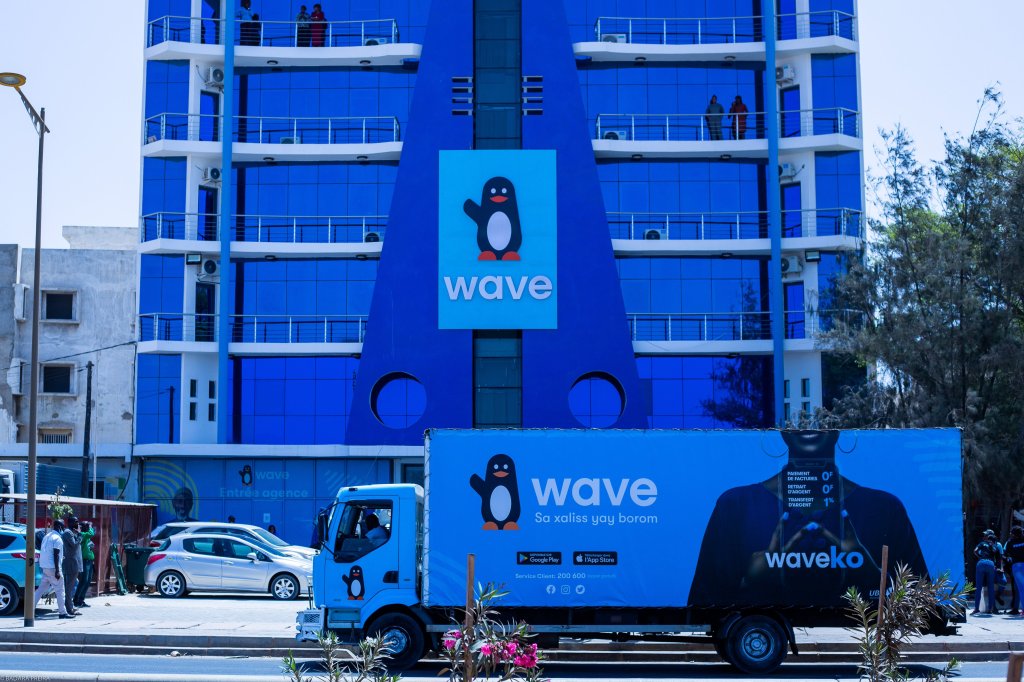Wave, an African fintech that offers mobile money services in Senegal and Ivory Coast, laid off about 15% of its workforce last month. TechCrunch first got a whiff of the layoff news on LinkedIn, where Jessica Chervin, a former Andela executive who joined Wave as an expansion lead in March, wrote that she was leaving the company.
“Like many tech companies, Wave is adjusting rapidly to the jarring changes in capital markets in recent months and like the best of them (and importantly, as a financial institution), it has had to make very hard calls in order to ensure that it can continue to serve customers in existing markets now and long into the future,” Chervin, who is also an angel investor, wrote. “This vital shift in strategic priorities means that I and many others are leaving Wave far earlier than anyone had hoped.”
TechCrunch reached out to Wave for comment on the matter and a spokesperson confirmed that “close to 15%” of the company’s almost 2,000 staff were let go. Thus, the layoffs affected almost 300 employees, most of whom worked in Wave’s new markets: Burkina Faso, Mali and Uganda.
According to a statement Wave released to its employees on June 30, the company said it was scaling back its teams in these markets as part of efforts to make sure it doesn’t have to depend on new funding at a time “when investors around the world are cutting back.”
Wave said its decision to pull out from newer markets will help it double down on Senegal and Ivory Coast, core markets “where we are market leaders in mobile money with growing businesses,” as it continues to serve its new markets.
In 2020, Wave officially spun off from Sendwave, a remittance platform that WorldRemit acquired for about $500 million in cash and stock. The company, which operated a stealth launch two years prior in Senegal, has since raised more than $290 million in equity and debt capital funding to date. The firm, run by Drew Durbin and Lincoln Quirk, was valued at $1.7 billion at its last fundraise last September after it raised $200 million, the largest Series A in Africa. It was led by Stripe, Sequoia Heritage, Founders Fund and Ribbit Capital. The startup’s other investors include Sam Altman and Partech Africa.
Wave’s platform is akin to PayPal (with mobile money accounts, not bank accounts). It runs an agent network that uses cash on hand to service customers who can make free deposits and withdrawals and get charged a 1% fee whenever they send money.
The company is disrupting the mobile money industry dominated by banks and telcos with its app-based solution, cheaper fees and QR-based tech. And despite its continuous squabble with these incumbents due to eating into their market share, Wave claims to serve more than 10 million users monthly across its operating markets.
Wave is the first unicorn out of Senegal and the overall Francophone Africa region. However, its staff cuts across its five markets, Tunisia, Kenya, the U.S., Germany, Nigeria and the U.K. The company’s spokesperson said that a small percentage of the released employees operated remotely across these countries.
“The people we’re parting ways with are some of the smartest and most dedicated in our industry. Letting them go is one of the hardest decisions we’ve ever had to make as a business,” the remainder of the statement read. “We regret the impact on employees and their families, but we feel strongly that the best way to honor these colleagues is to ensure their contributions last. Wave is offering enhanced benefits and packages to all affected employees to express our deep appreciation for their valuable contributions, hard work, and dedication.”
As the global venture capital market slows, Africa charts its own course
Layoffs have become the norm as rising interest rates and an extended bull run that swept across private and public markets over the last couple of years, among other factors, combine to make life difficult for tech companies. Amidst recession fears, investors are being stringent with their money, mainly toward growth- and late-stage startups. As a result, startups have had to cut costs and trim down workforces to survive; those who have had some success raising capital have had to adjust to pre-pandemic valuations.
Big Tech companies have fired (Microsoft) and hinted at firing (Meta) employees. Small- to large-sized startups in various sectors, such as Substack, Hopin, Coinbase, Bolt, Byju, Twitter, PayPal and Tesla, have downsized too. And though it seemed, at first, that the knock-on effect would take a considerable amount of time before reaching Africa, news of layoffs from mobility startup Swvl and healthtech company Vezeeta made the rounds last month.
However, just as the situation wasn’t dire for Swvl and Vezeeta, it isn’t for Wave. The Senegal-based startup likely has enough money in the bank for the next few years, and last week, it secured a €90 million syndicated loan from the International Finance Corporation (IFC), Lendable, Norfund and other lenders in one of the largest debt deals on the continent. The loan, Wave said, will help it increase its customer base and grow operations in Senegal and Ivory Coast.
SWVL plans to lay off 32% of its team two months after going public
Egyptian healthtech startup Vezeeta cuts 10% of 500-person staff
Microsoft lays off a portion of its workforce as part of a ‘realignment’































Comment